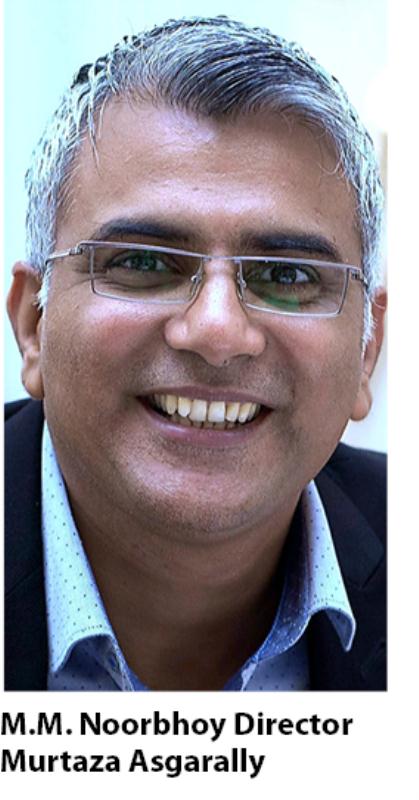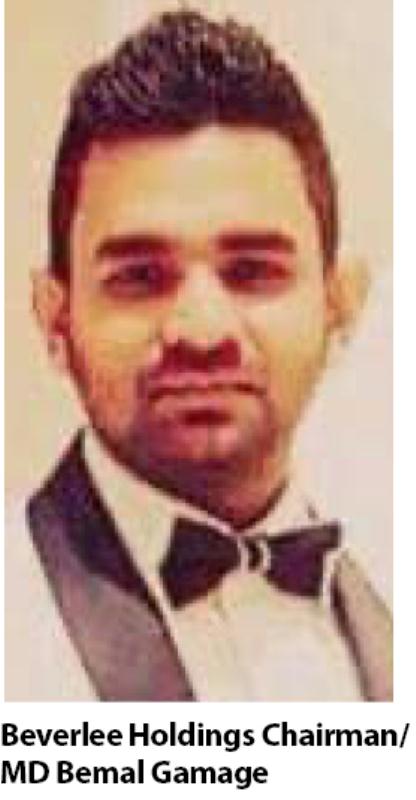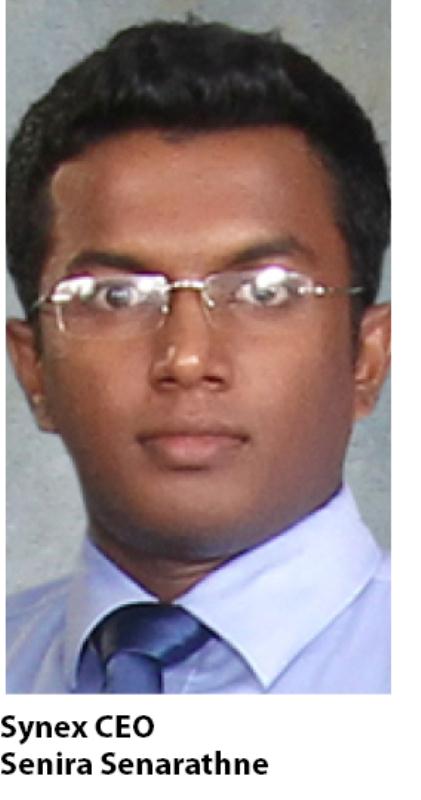• Foresee major layoffs over coming months
• Troubled by lack of a voice and representation
• Hampered by restrictions of movement and imports
One sector that Covid-19 has severely impacted in Sri Lanka is construction, as many projects have been put on hold and investment to the industry has stopped as well.
At a panel discussion hosted by The Sunday Morning and moderated by its Business Editor Charindra Chandrasena, several construction industry stakeholders representing SMEs (small and medium-sized enterprises) called for state intervention to help the industry, which mostly consists of SMEs like themselves. They explained that these SMEs will face hardships in the months to come, in terms of businesses having to layoff employees and daily wage workers losing jobs.
The panel discussion consisted of Beverlee Holdings Chairman/Managing Director (MD) Bemal Gamage, Floor Designers Director – Sales and Marketing Manager Mohamed Rinaz, M.M. Noorbhoy (MMN) Director Murtaza Asgarally, FPS Alpha (Pvt.) Ltd. MD Gerald De Saram, Taurus Enterprises Manager Aziz Najmudeen, Synex CEO Senira Senarathne, and The Elite Studio MD Sajjaad Shakeer.

They explained that most of the intervention should be coming from banks and governmental bodies, rather than the private sector. While the Chamber of Construction Industry Sri Lanka (CII) and the construction arm in the National Chamber of Commerce (NCC) represent the sector, SMEs do not have a place to communicate their problems to the Government in order to make the necessary changes.
According to FPS Alpha (Pvt.) Ltd. MD Gerald De Saram, an experienced stakeholder of the coating sector, all these chambers and business councils have very little clout, do not really give a voice to SMEs, and invite only big corporations to fora or discussions, despite SMEs making up about 60% to 70% of the Sri Lankan economy.
“When they have any kind of engagement with someone like the Minister of Trade, invariably the big corporate CEOs get invited, but SMEs do not get a voice. How many of these government bodies have had forums where SMEs are brought in, their issues addressed, and some sort of rectification process put in place to solve their problems? We currently do not have the support of the Government, banks, or bigger contractors,” stated De Saram.
Being members of both the Sri Lanka-China Business Council and a Sri Lanka-India business body, Taurus Enterprises, a subsidiary of Capricorn Enterprises, Manager Aziz Najmudeen stated that these two organisations informed them that they will help the industry by regulating their imports. However, nothing can be done until the current situation settles.
The stakeholders stated that a new body has been formed during the ongoing outbreak. Called the Contractors Protection Forum, it seeks the Government’s support in gaining aid in terms of cash flows and diverting more foreign contracts to local contractors moving forward, which would increase the survival rate of most companies in Sri Lanka. Despite this development, the panel stated that these initiatives would take time; during that period, the toughest companies in the country will find a way to survive while the others might even go bankrupt.
The industry does not currently have a government hotline for the reporting of any issues or inquiries, as construction is not classified as an essential service.
During the discussion, the panellists also stated that the lack of proper representation has impacted SMEs’ planning, as the state of the outbreak changes every day, making it difficult for these companies to keep track.
“We are also not directly given information about the restrictions; we find out from various other sources,” said Najmudeen.
Foreign dominance
The Condominium Developers Association of Sri Lanka (CDASL), which is part of the Ceylon Chamber of Commerce (CCC), wrote to President Gotabaya Rajapaksa recently seeking urgent support and relief for the property development and construction industry during this outbreak.
The letter contained a list of eight recommendations, a couple of which outlined highly concessional terms to be provided mainly for FDIs (foreign direct investments). One was to direct the Board of Investment (BOI) to extend the project periods permitted, including the concessions for investor projects due to inevitable project delays, while the other was to encourage new investments greater than a stipulated value by granting attractive concessions.
According to architectural and furniture-fitting hardware supplier M.M. Noorbhoy (MMN)’s Director Murtaza Asgarally, one of the changes the Government needs to look into is supporting the industry’s SMEs by giving them an advantage over the bigger international companies.
“I have competition here that is from other countries, that are taking money back to their home countries.”
He explained that international competitors who come to Sri Lanka with their technology and marketing effectively take opportunities away from local SMEs and also take money out of the country. He went on to state that while the Government sees them making more sales and paying higher taxes, they are still taking the money back to their countries.
“Now where is the justice for people like us? We are a company that’s over 118 years old in the local industry; when do we get a chance to grow? These guys come in with all their technology and marketing jargon, hoodwinking the local industry, and we – being local SMEs – are usually delivering the same quality of work, if not better, but yet we lose opportunities. We need this to change so we can survive.”
Asgarally compared these companies’ entry to Sri Lanka with the country’s earlier colonisation by Britain, the only difference being that the country is now inviting them to come and take its resources.
These countries were able to expand their reach into Sri Lanka with the aid of their own country, and it is the lack of strong policymakers in the local industry that is allowing them to enter and take money back to their country, stated Asgarally.
Making an example of a large Indian project in Colombo, he explained that they have hired foreign architects, developers, and hardware for the project; these foreign investors should be allowed to invest on condition that they use local labour and suppliers as much as possible.
“If I am not earning out of this, I am losing out, and if I am losing out then I am not paying taxes and then the Government does not get revenue.”
De Saram added to this, stating that while he does not believe in advocating for the promotion of inefficient local industries that would ultimately affect consumers and the country badly, he sees the benefit of levelling the playing field when it comes to the construction industry.
“While getting the big players to come in and do what they do, we should also set up a support structure for local SMEs to compete at that level.”
He suggested that the Government should create an integrated support structure to help the local industry support themselves, similar to what countries like Israel did. The Local Government should set up infrastructure by giving tax breaks to companies that exclusively do research and development, and in turn have these companies support the local industry.
“If I am a science-based company, and the Government helps me set up that lab and helps me finance it and get it going, I can then be incentivised to produce products to help the local industry.”
When asked if imposing conditions on foreign investments would deter investors, Asgarally stated that as they invest to gain profit, the Government can give them the opportunity to make that profit, but also lay out restrictions stating that they need to use stakeholders from the local industry. “This way, the investments will still come in while also aiding local SMEs.”
De Saram stated that many other countries follow this same methodology, and do not give these foreign investors complete freedom to act as they like. Instead, they have rules to ensure that the labour is local and suppliers, wherever possible, are local as well.
He suggested using this same methodology to fulfil the request made by the CDASL to the President.
Taking the paint industry as an example, he explained that there are currently about nine or 10 large local paint companies and a plethora of smaller ones which can import raw materials with either no duty or just duty of 5%; this is there to help the local industry. However, foreign companies are also allowed to import finished paints duty-free, which would otherwise cost them 40-50% more. As such, De Saram stated that bigger companies from countries like China can export paint to Sri Lanka at prices the local companies cannot compete with.
Meanwhile, Asgarally stated that foreign investment is good for the country, but conditions must be put on all money being taken out of the country.
Permission issues
Another issue affecting the local construction industry is the ban on travel between districts. According to Floor Designers, a pioneer in the country’s flooring, Director – Sales and Marketing Mohamed Rinaz, the company currently has staff stuck in different sites with no way of getting home.
He stated that they appealed to the relevant authorities, including the Police, public health inspectors (PHIs), and the grama niladharis in the relevant areas, but to no avail. They request that the industry be allowed a short-term relaxation period for the workers to go back to their families.
The panel went on to explain that although their employees were stuck in these sites, they could not continue work as they had depleted their stocks of raw materials. This was a result of the lack of the necessary permissions required to transport and supply raw materials.
Therefore, the parties request that permits, such as cement and sand permits, be issued in order to continue some form of production.
During the discussion, the panel also stated that they reached out to banks for the debt moratoriums, but are yet to receive any response. They suggested that banks be quicker when responding, as the longer they delay, the more trouble the industry would face, as the need of the hour is to organise finances to support their employees. They also requested the Government to provide other aid in the form of working capital and a reduction of tax on raw materials.
Salaries and jobs
If the pandemic continues for a few more months, De Saram stated that the construction industry will need a lot of state intervention, not only when it comes to businesses, but also in terms of individuals who will lose their jobs.
The panel explained that while some of them can hold on for the next two months and do not want to layoff any employees, as the industry consists of a specially skilled labour force, their employees are looking at other avenues because they cannot continue this way. They stated that it was a tough decision to work out until things fall back in place, or financial institutions help them.
Asgarally stated that the directors of his company have not taken a salary for the past two months, and instead have opted to make sure their staff get paid; they are also organising dry ration runs for them.
“My staff is my family at the end of the day, and I am where I am because of them. I have to treat them humanely, otherwise it’s not fair. They play a huge role in my company, so I cannot let them go, and I have to take the hit.”
During the discussion, Bemal Gamage, Chairman/MD of property developer Beverlee Holdings stated that from a builder’s point of view, right now, they need working capital and a concession on raw materials. He went on to state that the industry also needs to encourage domestic manufacturers and needs to adopt a “buy local, support local” mentality.
Gamage stated that his company is currently booked till the end of this year, so he would not be downsizing, but there could be salary reductions.
De Saram stated that the industry does not want the Government to set up rules to protect their business, but instead wants to be an independent private sector while the Government supports in the form of making finance available, scaling development, providing training facilities, and research and development facilities.
“The independence of the private sector must be sustained, but the Government has to take into cognisance that the SMEs are the real employers of people.”













